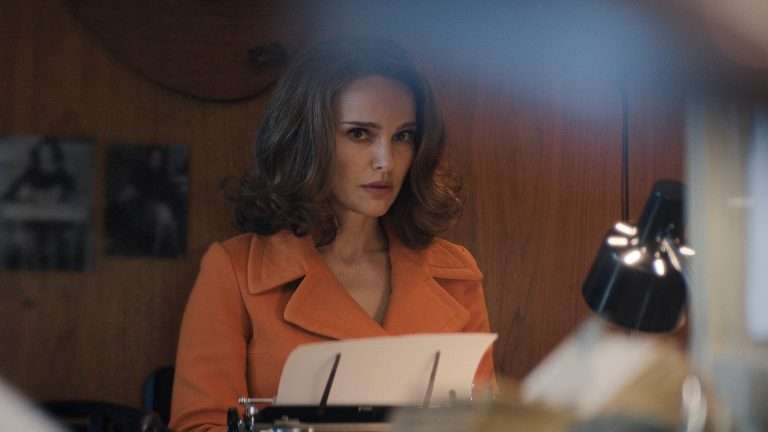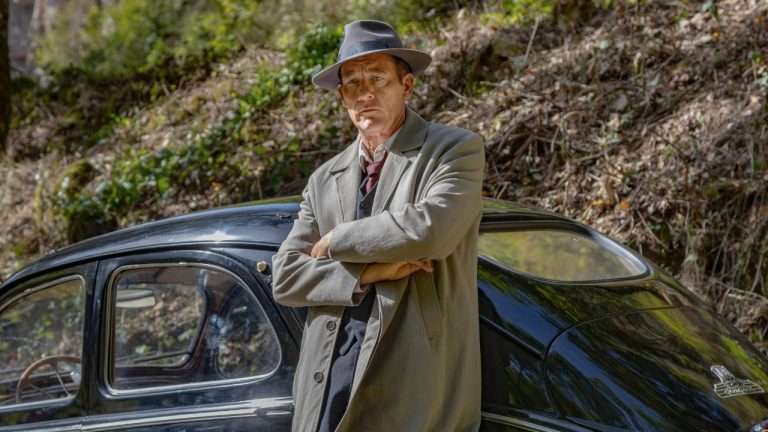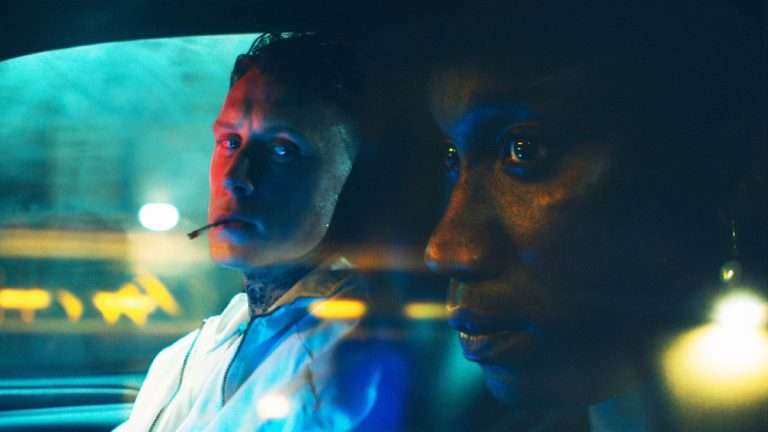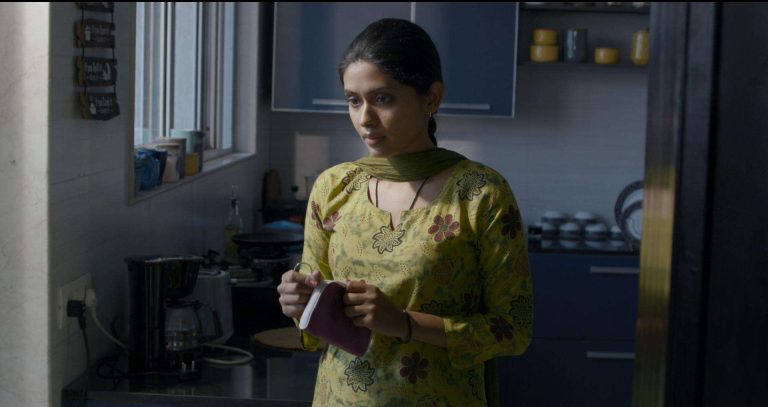Broadway (2022) Movie Review: To title a film ‘Broadway’ and not set it in the legendary Manhattan street would undoubtedly raise eyebrows from many. But what director Christos Massalas’s debut film lacks in its spatial setting, it certainly makes up in style, drama, and camp to justify naming itself after its theatrical counterpart. Broadway (2022), a part of the New Wave Greek films, is an immaculately framed, superbly performed, and brilliantly paced debut that would surely serve as a calling card for Massalas.
Set in Athens, the film follows our protagonist, Nelly (Elsa Lekakou), who works as a pole dancer at a strip club, much to the dismay of her rich mother, who was once an accomplished ballerina herself. When Nelly’s mother sends some men to bring her back home, she is rescued by a mysterious stranger, Markos (Stathis Apostolou). Markos takes Nelly to visit his family on Broadway—which Nelly soon realizes is not in America but is just a washed-out entertainment complex named after the New York street.
Plus, the family Markos is talking about is his adopted group of accomplices operating a pickpocketing business. We have Rudolph (Rafael Papad) and his lover Mohammad ‘Mojito’ (Salim Talbi), and of course, Lulu, the rabid pet monkey incarcerated inside a tiny cage. And there is also a mysterious stranger (Foivos Papadopoulos) in one of the basement rooms, whose face is bandaged as if he was from the H.G. Wells novel.
Soon, Nelly joins the pickpocketing business as she performs in the crowded streets to distract the masses with her charm, while Markos and his cronies steal wallets and money from the unsuspecting audience. Markos and Nelly also begin a sexual relationship in Markos’s bed—which is placed right at the center of the once-abandoned stage. When the mysterious stranger finally begins to get well, he adopts the alias of a transwoman called Barbara and joins Nelly as her street dancing partner.
One day, the cops end up arresting Markos, and he is jailed for a year leaving Nelly, Barbara, Rudolph, and Mohammad to fend for their own. Nelly and Barbara hit it off while the group strengthens their ties. Everything seems picture-perfect, but what would a film titled Broadway be without some drama? Just when the group least expects it, Markos returns, throwing their ephemeral period of freedom into chaos. Violence, jealousy, and betrayal ensue, complicating the dynamics between the group.
For the film, director Massalas took inspiration from the film noirs of the forties and other American films of the fifties. However, there is also a touch of Bob Fosse’s Cabaret (1972), John Waters’ early campy films, and Pedro Almodóvar. These latter queer inspirations abound not just through the inclusion of outcast gender-fluid characters like Rudolph, Mohammad, and Barbara but also through formal and stylistic nods to these films.
In one hilarious sequence, Barbara enlists the help of drag queens in Athens to save Nelly from the clutches of the cops. While a group of drag queens running and screaming on the street should be queer in itself, the way Massalas ends his shots also adds to the camp aesthetics of the film. Academy-nominated editor Yorgos Lamprinos (The Father) cuts his shots right before the completion of the action, giving the film a kinetic momentum that lends the film its enviable pace.
Adding to this theatricality is the superbly cinematic framing by cinematographer Konstantinos Koukoulios, which also utilizes lighting to great effects in the latter half when things get dark. The score by Oscar-winner Gabriel Yared, mixing studio-era Hollywood music comprising of brooding violins, is blended with Greek pop and gay anthems (“You Spin Me Round (Like a Record)” recurs several times throughout the film).
Another winning feature of the film is its central performance by Elsa Lekakou, who had previously collaborated with Massalas in his short Copa-Loca (2017). Lekakou’s Nelly embodies the headstrong and free-willed women of Almodóvar’s universe with dexterity. Foivos Papadopoulos, playing Nelly’s romantic interest, is convincing in his drag performance. While his character does not have the fierceness of Nelly, Papadopoulos’s broken face reveals enough about Barbara’s tumultuous past.
Stathis Apostolou, as Markos, who ultimately metamorphoses into the narrative’s nemesis, displays shades of humanity in his character without compromising his ruthless persona. While Rudolph and Mohammad do not get enough characterization apart from being gay sidekicks, their affability and warmth are well-portrayed by Rafael Papad and Salim Talbi.
In its third act, the film tones down its theatrics to chart into more cat-and-mouse thriller territory as Nelly and the group try to outsmart Markos. While never dull and even culminating with a literal bang, the narrative does not store a satisfying character arc for these memorable figures. Massalas clearly wanted to steer away from both Hollywood melodrama and European epic theatre to grant an ending to his characters. Still, his final stroke seems too timid an end for these rebellious personalities.
But few films can dare to title themselves Broadway and deliver on the promise of story, costume, music, melodrama, and suspense. Achieving this feat alone should make us extremely curious about Massalas’s next outing.




![Fallen Angels [1995]: The Art Of Longing](https://79468c92.delivery.rocketcdn.me/wp-content/uploads/2017/04/Fallen-Angels-237-768x426.jpg)
![The Last Film Show [2021] ‘Tribeca’ Review: A Bright, Starry-Eyed Film About Storytelling and Living Your Dreams](https://79468c92.delivery.rocketcdn.me/wp-content/uploads/2021/06/The-Last-Film-Show-1.jpg)
